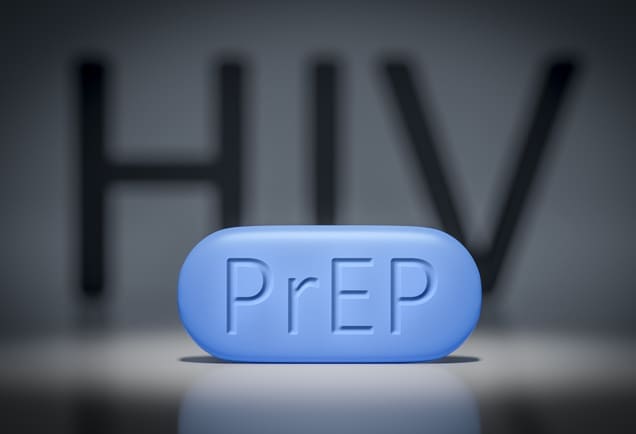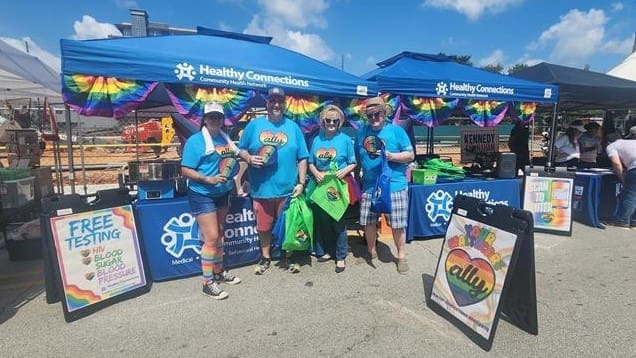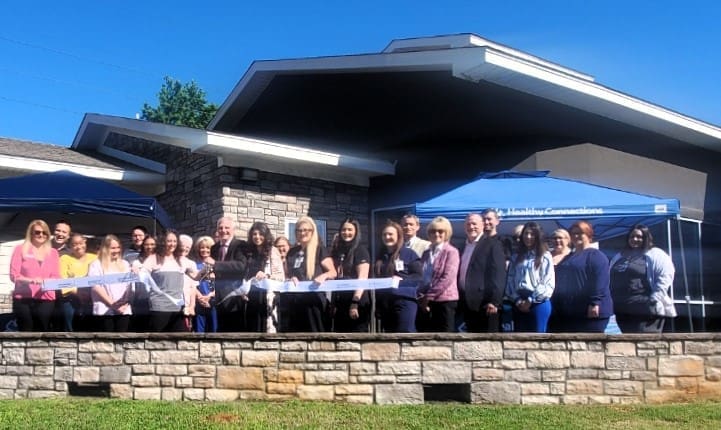
Pre-exposure prophylaxis
PrEP is the use of medications to prevent the spread of HIV in people who have not yet been exposed to the disease.
888-710-8220
PrEP, or pre-exposure prophylaxis, is medicine people at risk for HIV take to prevent getting HIV from sex or injection drug use. PrEP can stop HIV from taking hold and spreading throughout your body.
Why take PrEP?
PrEP reduces the risk of getting HIV from sex by about 99% when taken as prescribed. Among people who inject drugs, it reduces the risk by at least 74% when taken as prescribed. PrEP is much less effective when it isn’t taken consistently.
Is PrEP right for you?
PrEP may benefit you if you test negative for HIV and
- you have had anal or vaginal sex in the past 6 months, and you:
- have a sexual partner with HIV (especially if the partner has an unknown or detectable viral load),
- have not consistently used a condom, or
- have been diagnosed with an STD in the past 6 months.
Or - you inject drugs and
- have an injection partner with HIV, or
- share needles, syringes, or other injection equipment.Or
- you’ve been prescriped PEP (post-exposure prophylasix) and you
- report continued risk behavior or
- have used multiple courses of PEP
If you are a woman and have a partner with HIV and are considering getting pregnant, talk to your doctor about PrEP. PrEP may be an option to help protect you and your baby from getting HIV while you try to get pregnant, during pregnancy, or while breastfeeding.
Is PrEP safe?
PrEP is safe. No significant health effects have been seen in people who are HIV-negative and have taken PrEP for up to 5 years. Some people taking PrEP may have side effects, like nausea, diarrhea, headache, fatigue, and stomach pain. These side effects are usually not serious and go away over time. If you are taking PrEP, tell your health care provider if you have any side effect that bothers you or that does not go away. And be aware: PrEP protects you against HIV but not against other sexually transmitted infections (STIs) or other types of infections. Combining PrEP with condoms will reduce your risk of getting other STIs.
How do you get PrEP?
If you think PrEP may be right for you, call Health For Life Clinic and Healthy Connections at 888-170-8220 to schedule an appointment. Because PrEP is for people who are HIV-negative, you’ll have to get an HIV test before starting PrEP and you may need to get other tests to make sure it’s safe for you to use PrEP. If you take PrEP, you’ll need to see your health care provider every 3 months for repeat HIV tests, prescription refills, and follow-up.
Is PrEP covered by my insurance?
In most cases, yes! Under the Affordable Care Act, PrEP must be free under almost all health insurance plans. That means you can’t be charged for your PrEP medication or the clinic visits and lab tests you need to maintain your prescription. There are no out-of-pocket costs for you. This applies to most private health insurance plans you get through your employer or purchase yourself, individual plans you purchase through HealthCare.gov or state-based Marketplaces, and state Medicaid expansion coverage plans. In some states, the traditional Medicaid program also covers PrEP at no charge. This does not automatically apply to Medicare. (Medicare Part D prescription drug plans cover PrEP medication, but there will still be cost sharing.)
Healthy Connections Community Health Network proudly provides high-quality health services to LGBTQ+ patients and their families and is a safe and welcoming environment. We have been a leader in LGBTQ+ health in Arkansas and are deeply committed to offering equitable, supportive, knowledgeable, and sensitive care to LGBTQ+ people and their loved ones. Learn more.
Clinics
Russellville
Hot Springs Village
Updates

Northwest Arkansas Pride Recap
Healthy Connections participated in the Northwest Arkansas Pride Festival 2024, offering inclusive healthcare services, HIV testing, and promoting community support.

In Memory of Derwood Brett: Leader, Mentor, and Community Advocate
Derwood Brett, esteemed Chairman Emeritus of Healthy Connections, Inc., passed away this week at 76, leaving a profound legacy of leadership and community service across media, public relations, and the electric utility industry.

Arkadelphia Clinic Ribbon Cutting and Welcome Celebration
Healthy Connections Arkadelphia welcomed new providers Kristin Brown APRN, Leslie Collie APRN, and Kara Worley OBGYN to the clinic.

Arkadelphia Clinic Celebration Event June 6
Healthy Connections and Arkadelphia Alliance are hosting a ribbon cutting and community celebration on Thursday, June 6 at 9:30 a.m.




